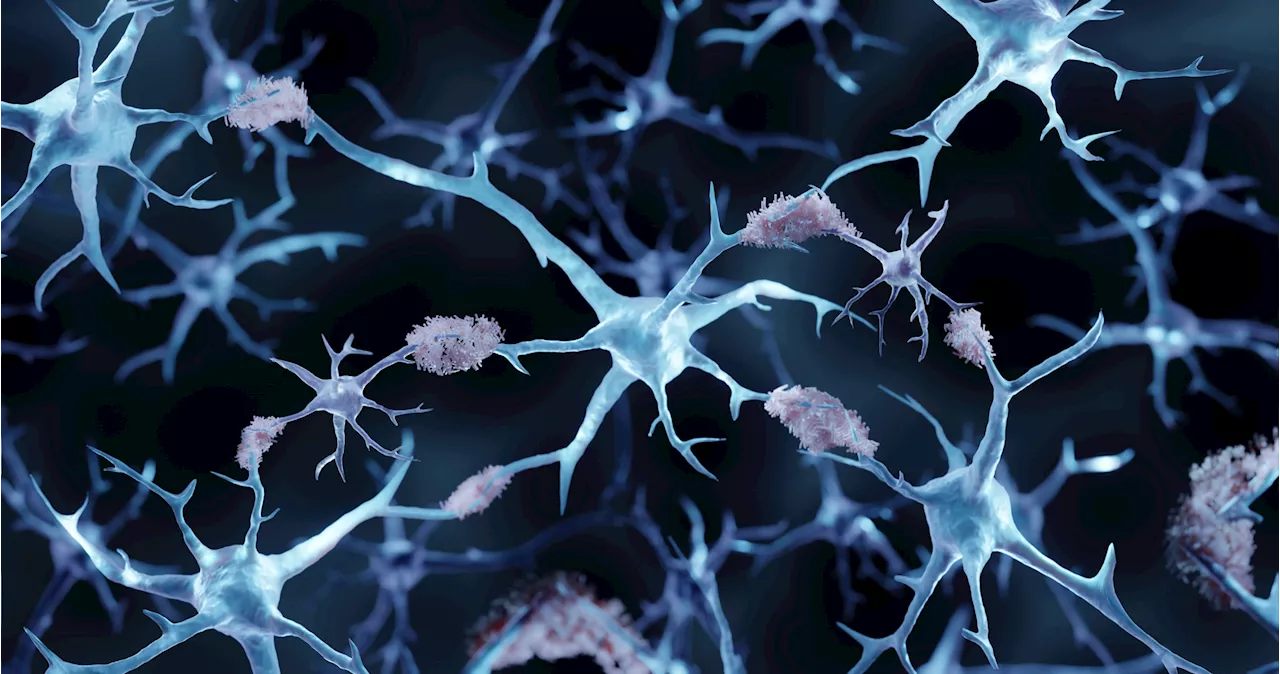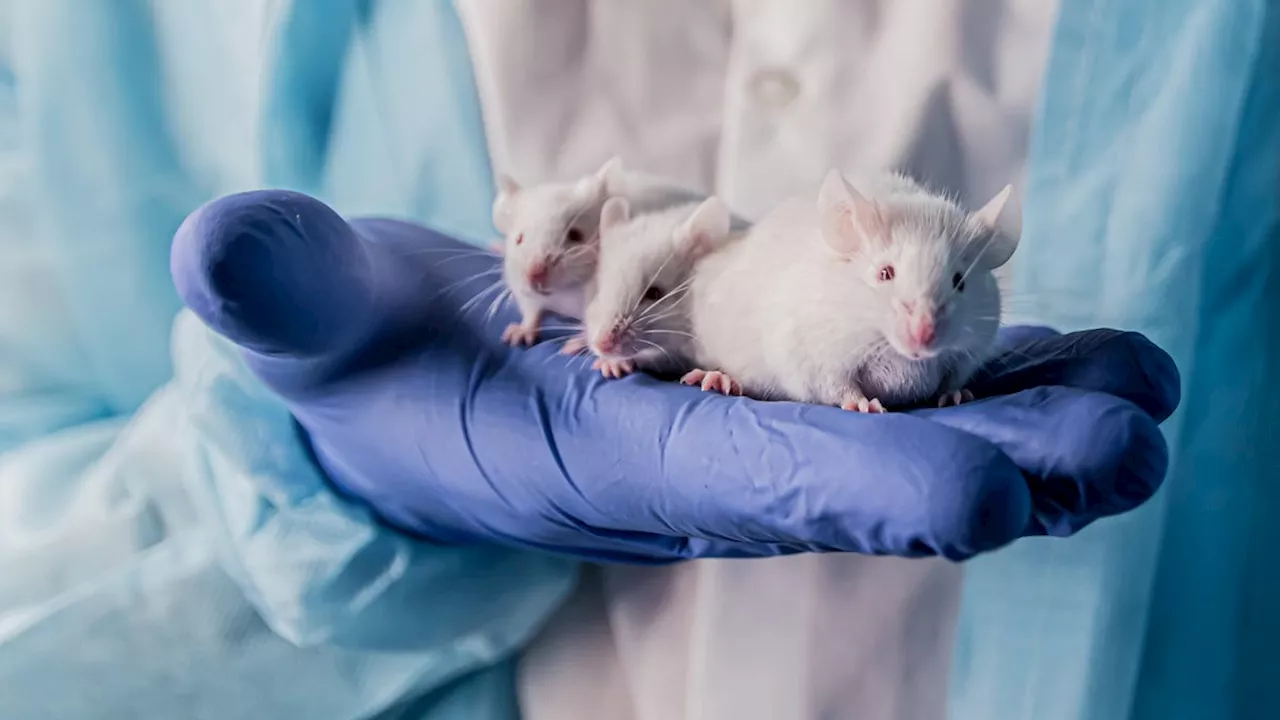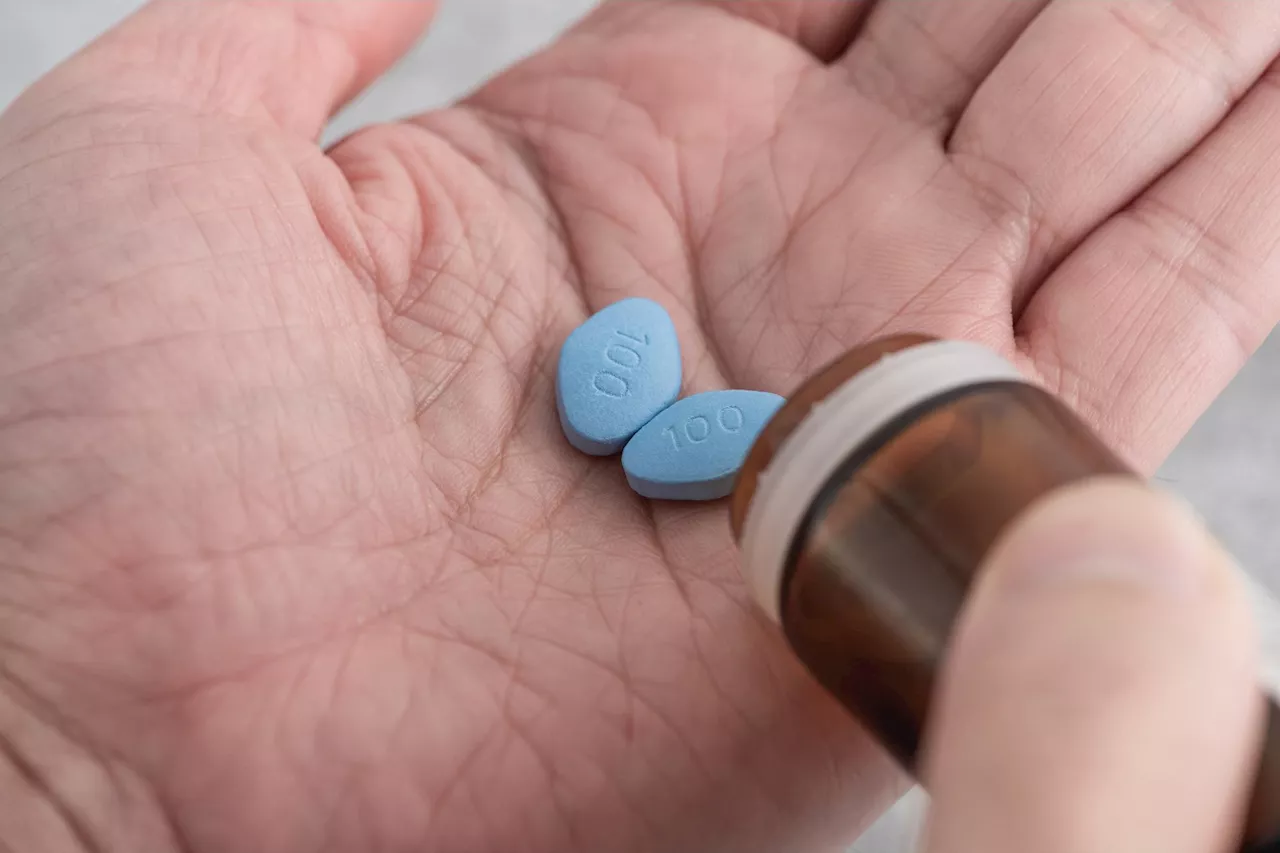Scientists have shown that treating mice with an antibody that blocks the interaction between APOE proteins (white) sprinkled within Alzheimer's disease plaques and the LILRB4 receptor on microglia cells (purple) activates them to clean up damaging plaques (blue) in the brain.
Scientists have shown that treating mice with an antibody that blocks the interaction between APOE proteins sprinkled within Alzheimer's disease plaques and the LILRB4 receptor on microglia cells activates them to clean up damaging plaques in the brain.
The approach could have implications beyond Alzheimer's. Toxic clumps of brain proteins are features of many neurodegenerative conditions, including Parkinson's disease, amyotrophic lateral sclerosis and Huntington's disease. Encouraged by the study results, researchers are exploring other potential immunotherapies -- drugs that harness the immune system -- to remove junk proteins from the brain that are believed to advance other diseases.
For reasons that are still unknown, the researchers found that, in mice and people with Alzheimer's disease, microglia that surround plaques produce and position LILRB4 on their cell surface, which inhibits their ability to control damaging plaque formation upon binding to APOE.
Drugs that target amyloid plaques directly can cause a potentially serious side effect. In Alzheimer's patients, amyloid proteins build up on the walls of the arteries in the brain as well as other parts of brain tissue. Removing plaques from brain blood vessels can induce swelling and bleeding, a side effect known as ARIA. This side effect is seen in some patients receiving lecanemab, a drug approved by the Food and Drug Administration to treat Alzheimer's.
Brain Tumor Diseases And Conditions Healthy Aging Dementia Alzheimer's Disorders And Syndromes Huntington's Disease
United States Latest News, United States Headlines
Similar News:You can also read news stories similar to this one that we have collected from other news sources.
 Scientists pioneer immunotherapy technique for autoimmune diseasesScientists have developed an immunotherapy strategy that potentially lays the groundwork for treating a spectrum of autoimmune diseases.
Scientists pioneer immunotherapy technique for autoimmune diseasesScientists have developed an immunotherapy strategy that potentially lays the groundwork for treating a spectrum of autoimmune diseases.
Read more »
 Mutation Helps Even Carriers of 'Alzheimer's Gene' Avoid Alzheimer'sA genetic mutation that boosts cell function could protect people against Alzheimer’s disease, even if they carry another gene mutation known to boost dementia risk.
Mutation Helps Even Carriers of 'Alzheimer's Gene' Avoid Alzheimer'sA genetic mutation that boosts cell function could protect people against Alzheimer’s disease, even if they carry another gene mutation known to boost dementia risk.
Read more »
 Scientists Discover Possible New Treatment for Alzheimer'sThe treatment works by restoring the activity of our brain's own cellular cleanup crew.
Scientists Discover Possible New Treatment for Alzheimer'sThe treatment works by restoring the activity of our brain's own cellular cleanup crew.
Read more »
 Scientists Find Evidence in Mice That Inherited Alzheimer's Could Be TransmittableWhile such a risk has yet to be confirmed in humans and is likely to be low, the authors urge more research into the possibility.
Scientists Find Evidence in Mice That Inherited Alzheimer's Could Be TransmittableWhile such a risk has yet to be confirmed in humans and is likely to be low, the authors urge more research into the possibility.
Read more »
 Alzheimer's May Spread Through Blood Transfusions, Scientists FindScience and Technology News and Videos
Alzheimer's May Spread Through Blood Transfusions, Scientists FindScience and Technology News and Videos
Read more »
 Scientists Link This Incredibly Popular Class of Drugs to a 18% Lower Risk of Alzheimer’sScience, Space and Technology News 2024
Scientists Link This Incredibly Popular Class of Drugs to a 18% Lower Risk of Alzheimer’sScience, Space and Technology News 2024
Read more »
